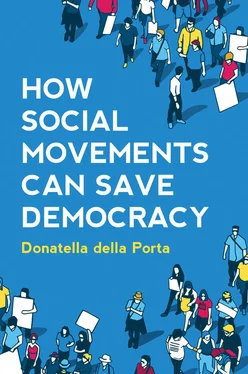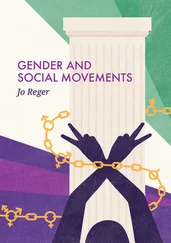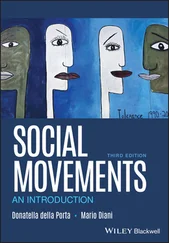Critical and creative approaches to knowledge aim at social transformation. Scholars have stressed the capacity of progressive social movements to offer alternative analysis and develop responses to situations of exploitation and exclusion starting from the direct experience of those situations. Thus, ‘If scientific knowledge aspires to develop generalizable theoretical and methodological models (some of which is indeed often relied upon by movement actors), “peoples’ knowledge” is based on grounded experience that can differently enhance particular processes of social emancipation’ (Casas-Cortés et al. 2008, 48).
Social movement knowledge is in fact said to be situated rather than universal, committed rather than detached, focused on changes at the roots of the system rather than on the symptoms (Mayo 1999). It tries to provide useful skills; to develop a critical understanding of power and of agency (Foley 2004); and to connect the local and the global (Crowther et al. 2005). The knowledge produced is ‘embedded in and embodied through lived, place-based experiences, [which] means that they offer different kinds of answers than more abstract knowledge: knowledges that are situated and embodied, rather than supposedly neutral and distanced (Casas-Cortés et al. 2008, 42–3). Movements generate knowledge which moves from practice to theory (Gordon 2007). Their knowledge is therefore considered as basically oriented to articulating theory and praxis, taking concrete realities as the point of departure: ‘The goal is that of creating an appropriate and operative theoretical horizon, very close to the surface of the “lived”, where the simplicity and concreteness of elements from which it has emerged achieve meaning and potential’ (Malo de Molina 2004, 13).
The importance of social movement knowledge is also related to its emergence in action. In particular, movement theorizing is
grounded in the process of producing ‘social movements’ against opposition. It is always to some extent knowledge-in-struggle, and its survival and development is always contested and in process of formation. Its frequently partial, unsystematic and provisional character does not make it any the less worth our attention, though it may go some way towards explaining why academic social movements theory is too often content with taking the ‘cream off the top’, and disregarding – or failing to notice – everything that has to happen before institutionalized social movement theorizing appears in forms that can be easily appropriated. (Barker and Cox 2002, 11)
Thus, theorization based on alternative knowledge and practices represents an aspect of citizens’ engagement in creating collective institutions such as social movement organizations, which are expected to empower them in the pursuit of their aim of resistance and change (Barker and Cox 2002, 21).
In sum, progressive social movements have engaged and engage in democratic innovation. They experiment with new ideas in their internal life, prefiguring alternative forms of democratic politics, and they spread these ideas within institutions. They not only transform democratic states through struggles for policy change, but also express a fundamental critique of conventional politics, thus addressing meta-political issues and experimenting with participatory and deliberative ideas. Historically, progressive social movements have been the carriers of participatory and deliberative democratic qualities, calling for necessary adaptation through innovation in democratic institutions, playing a most relevant role in countering social injustice and struggling for democracy. In these struggles, they have produced innovative ideas and alternative knowledge. This has been, and is, all the more important in times of crisis, which old institutions appear unable to address. Rather than gradual change, these critical junctures require new ideas, even new paradigms, with which social movements may already have experimented. As mentioned, progressive social movements experiment with democratic innovations in their internal practices. In fact, their activities are oriented towards prefiguration of alternative forms of internal democracy. Self-reflexive actors, they experiment with new ideas of democracy, which are then the basis of proposed changes in democratic governance.
Triggered by dissatisfaction with centralized and bureaucratic representative democracy, since the 1970s so-called new social movements have pushed for various forms of participation in decision-making, spreading through a sort of ‘contagion from below’ (Rohrschneider 1993). Emerging trends within social movements that mobilized in the wave of protest against the financial crisis and for democratization illustrate this form of democratic innovation. Recently, the Global Justice Movement as well as anti-austerity protests have produced knowledge about direct democratic processes (Cox 2014, 965). In the beginning of the new millennium, with their reflexive practices inspired by Zapatistas and the building of deliberative spaces, the Global Justice Movement paid specific attention to knowledge production. More recently in the 2010s, those who protested in Tahrir, Porta del Sol, Syntagma Square or Zuccotti Park, and later in Gezi Park or Place de la République, have both criticized existing representative democracy as deeply corrupted and experimented with different models of democracy, stressing especially participatory and deliberative qualities. As a protest repertoire and organizational form, the acampadas – long-term camps in squatted public spaces – have been seen as the incarnation of a democratic experiment that has been adopted and adapted in different contexts. Aiming at participation and deliberation, the acampadas developed from previous practices of internal democracy, such as social forums, in the attempt to learn from their limits and try to address them (della Porta 2015b). In these activities, conceptions of participation from below, cherished by progressive social movements, have in fact been combined with a special attention to the creation of egalitarian and inclusive public spheres (della Porta 2013). With their emphasis on consensus, the acampadas privileged the participation of lay persons – the citizens, the members of the community – mobilized as individuals rather than members of associations of various types (Juris 2012), building on their personal experience and knowledge.
Contemporary progressive movements have considered transparency, equality and inclusivity as important democratic values. In particular, the setting up of camps in open-air space has aimed at enhancing the public and transparent nature of the process, expressing a reclaiming of public spaces by citizens. Choosing open spaces as the main site of protest, activists place a special emphasis on the inclusivity of the process, which involves the entire agora . The heterogeneity of participants is mentioned as a most positive aspect of the camps, in which people of different backgrounds, classes and ideology sit together and talk with each other (Gerbaudo 2012, 69). In this way, the acampadas , by occupying and subverting the use of prominent urban public spaces, aimed at reconstructing a public sphere in which problems and solutions could be discussed among equals (Halvorsen 2012, 431). Within the camps, the general assemblies aimed at mobilizing the common people – not activists but communities of citizens – through placards and individualized messages. Alternative practices were also developed in the everyday management of camp activities, including through free kitchens, medical tents, libraries, media centres and information centres for visitors and new participants (Graeber 2012, 240).
In all these activities, there were attempts at balancing the principle of direct democracy with a search for consensus. In the camps, consensual decision-making was built upon the practices devised by the horizontal wing in the Global Justice Movement (della Porta 2009), as collective thought was expected to emerge through inclusivity and respect for the opinions of all, even in large assemblies involving often hundreds of thousands of people. A consensual, horizontal decision-making process was based on the continuous formation of small groups, which then reconvened in the larger assemblies. Deliberation through consensus was in general seen as an instrument against bureaucratization, but also against the routinization of the assembly, and a way to construct a community (Graeber 2012, 23). So, the acampadas have been sites of contention, but also of exchange of information, reciprocal learning, individual socialization and knowledge building. Their ultimate goal was building a community through the personal knowledge of the participants and their direct experiences, including the expression of strong emotions. So, the occupied free spaces had to develop ‘possible utopias’, by attracting the attention of the media and inspiring participation, but also by ‘providing a space for grassroots participatory democracy; ritual and community building, strategizing and action planning, public education and prefiguring alternative worlds that embody movement visions’, as well as networking and coordinating (Juris 2012, 268). Camps were thus considered as places not only for talking and listening, but also for the building of collective identities, happening through the development of strong emotions and longer-lasting relations. Open public spaces were to create intense ties and sharing of a common belonging through encounters among diverse people. Camps therefore had to show opposition but also to prefigure new relations, experimenting with another form of democracy.
Читать дальше












